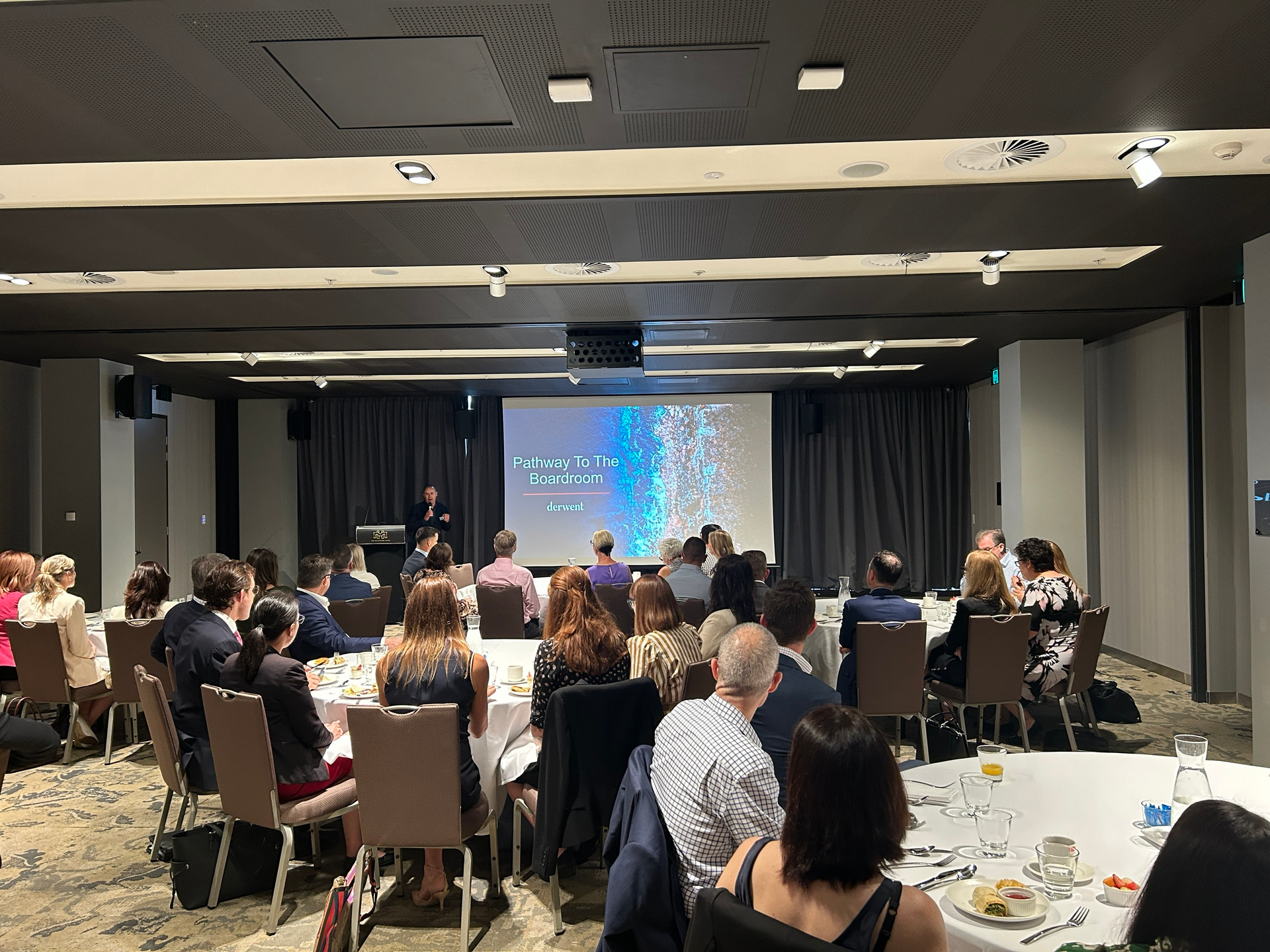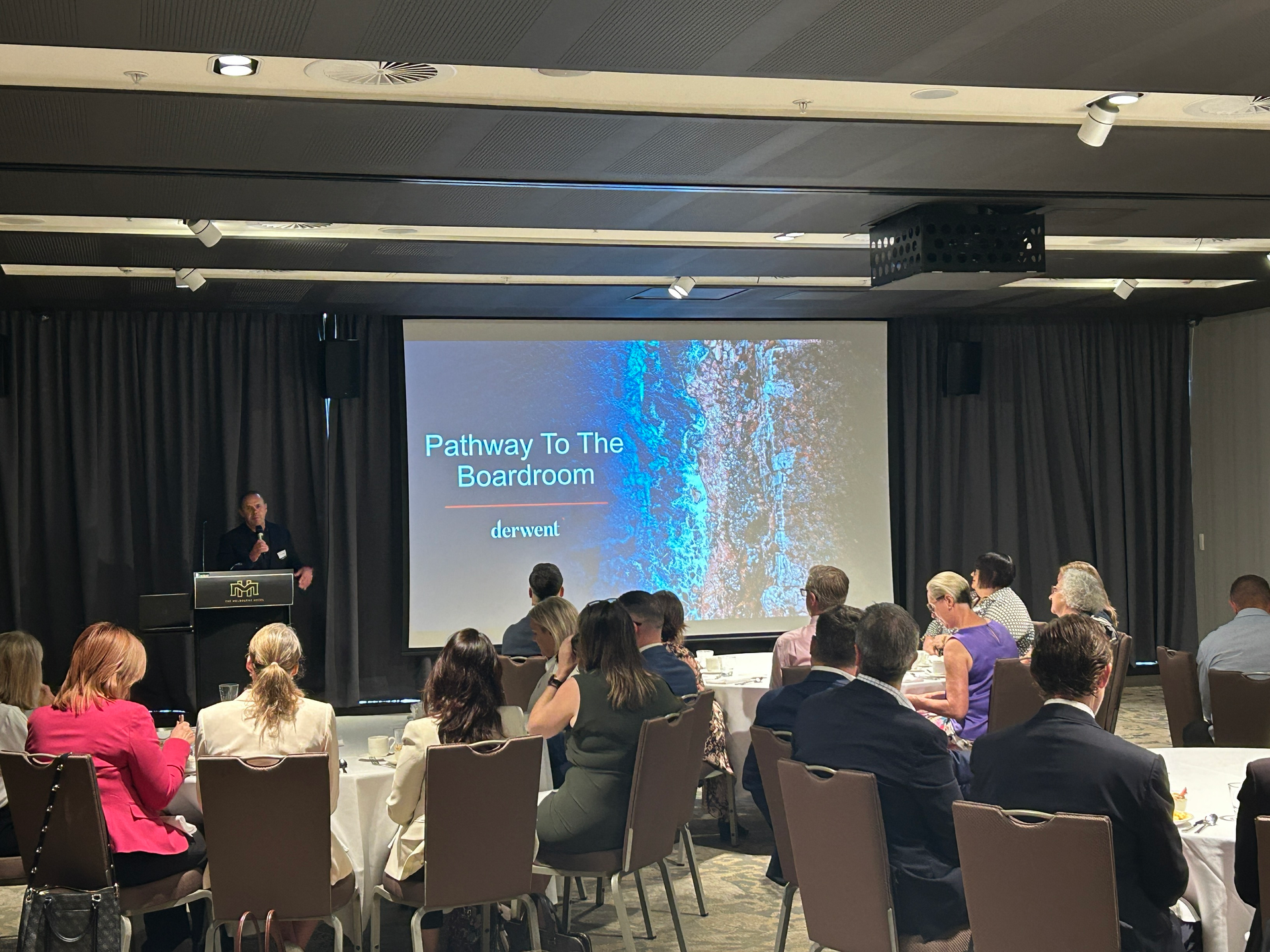News
Pathway to the Boardroom Forum with Ben Derwent

Derwent’s latest Pathway to the Boardroom event was hosted in Perth by our Managing Director Ben Derwent.
The event shared valuable insights to a crowd of aspiring Non-Executive Directors to help them take their first steps towards building a fulfilling career in the boardroom.
Board roles are a fantastic way of contributing expertise in different settings, and can provide opportunities to further your skillset, gain visibility across multiple business functions, extend your professional network, and to learn the dynamics of boardroom decision making.
Taking the first step can be difficult, and there are often different pathways to take. On this journey, it is important to assess what type of directorship is best suited to you and your skillset. “What will complement your executive career?” and “what board setting is most appropriate?” are important questions to reflect on.
There were three key themes shared for those looking to secure a board position:
#1 Considering your ‘Value Add’ proposition, and how to articulate it
- This applies to both an executive and board career. Your value proposition as an executive includes your industry experience, functional skills, as well as strategic capabilities. In transitioning your value proposition towards being a director, this extends to how you work with a board and c-suite, your ability to contribute to strategy development, critical thinking, risk and governance, and leadership experience. The ability to articulate these elements and how they would benefit a board are key.
#2 Defining your personal brand and engaging the right networks
- You need to clearly articulate and frame your personal brand presence (i.e. what you outwardly represent and are known for). Being proactive in engaging the right networks is the best avenue to ensure that you’re considered for board roles. Engaging search firms is also a great step, but your first board placement will likely come from your own personal networks. Building your network in both professional and social environments can help to expand your reach and opportunities.
#3 The importance of due diligence
- Taking the time to ensure that you have done your due diligence when considering board opportunities is crucial. A company may choose you, but it is equally important that you are also choosing them. Be sure to make both skillset (company strategy, risks, industry, etc.) and mindset (the people, culture, values, alignment) checks.
Derwent is delighted to continue to support the next generation of Board talent across both our events programs and directly through our expert team of Executive Search and Board specialists.
Share this article
Recent Articles








